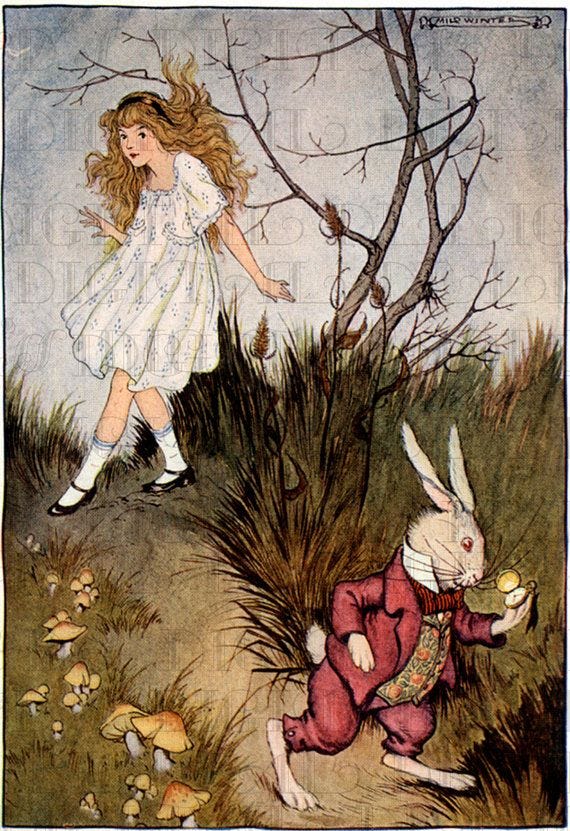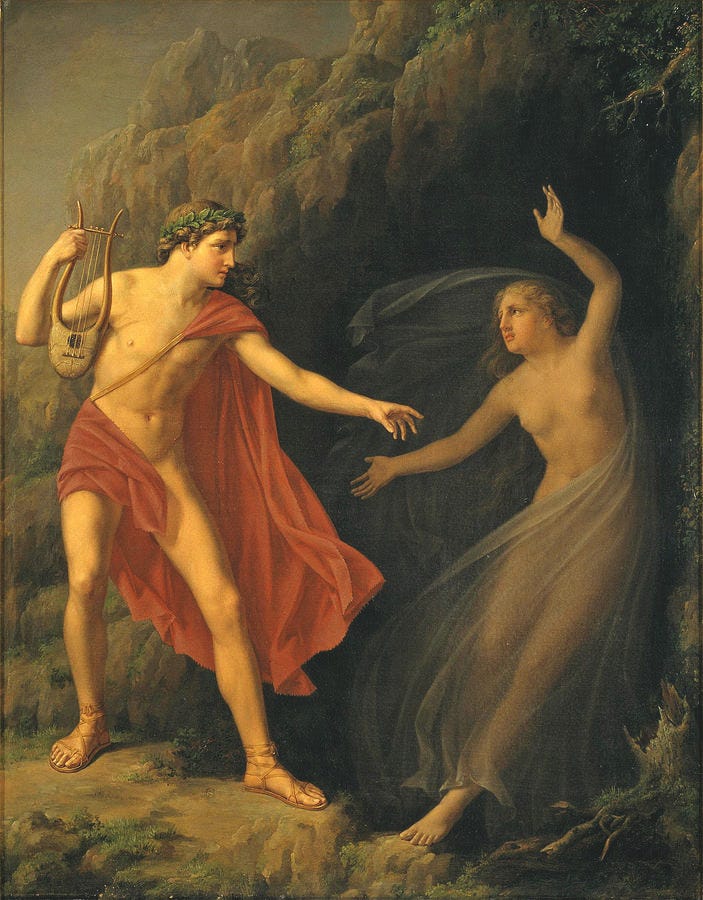Gravity's Rainbow - Part 3 - Chapter 15: Somebody Has to Tell You
Analysis of Gravity's Rainbow, Part 3 - Chapter 15: Slothrop and Bianca
Lewis Carroll, famous for his two Alice in Wonderland novels, was a passionate storyteller. However, his penchant for writing children’s stories coincided with that of his desire for the social company of girls under the age of twelve. He even expressed, in writing, how he found them utterly ‘beautiful.’ Whether or not he acted upon his urges is unclear. However, given that Slothrop dreams about Llandudno — the Welsh coastal city where stands a statue commemorating the spot-on which Carroll walked with Alice Liddell, one of those underage girls whom he had spent so much time with and was inspired to write his famous work — it seems that Slothrop is struggling with those same urges.
Belowdecks, Bianca has been watching him sleep. He is now awake. They begin with small talk, discussing Erdmann and Thanatz. It proceeds to turn uncomfortably playful, Slothrop questioning her about the paddling the day before and Bianca showing him the marks that were left, allowing him to bite at them.
This is Slothrop’s turning point upon the Anubis. The participation in the previous day’s orgy signified his lust for power and freedom from repercussion, but was also, to some extent, not evil. Now comes a further active participation in Their power structure — a willingness to exploit the innocent. Yes, Bianca comes onto him completely willingly, even knowing exactly what she is doing. But the fact that she does know what she is doing is one of the many horrifying aspects of this scene. She has clearly done this before, and not only once. Bianca has become used to sexual exploitation to the extent that she would likely say she largely enjoys it. Her young mind has been rewired so that she can serve the Elite. And Slothrop, though at one time fighting with those urges, now fails in his fight. He commits the unspeakable act from which he knows he cannot atone for. He has fallen into Their abyss, fallen “inside his own cock,” (470) momentarily leaving behind any rationality or any motes of goodness, now becoming pure sexual aberration and immorality. Signifying this unatonable act, across the sky comes a scream, “the kingly voice of the Aggregat itself” (470). Whether literal or imagined, Slothrop’s conditioning has become consummated: the unification of death and sex, of rocket and penis, of annihilation and orgasm, of the world They destroyed to the world They rebuilt, of so many maps laid over maps they have ceased to be different phenomena entirely. The world They rebuilt is here, and Slothrop has contributed to its creation in this consummating act.
As they lay together, he knows that he has committed an act of evil and participated in the corruption of youth. He nearly weeps as she, still holding onto a fragment of innocence, proposes that they hide, maybe even insinuating that they escape together as Ilse once believed she could escape to a more hospitable world — escape to the Moon. Of course, there is no chance for this: not for Slothrop’s redemption nor her happiness and solace. He believes he must leave and continue his quest, leave her here to continue playing as the central plaything for the Nations abovedeck. Their ‘object’ which they believe they rightly possessed. And so, he does leave, saying his forced goodbyes, turning “his back on her, and up the ladder he goes” (471). He knows he could have saved her.
The last glimpse he sees of her breaks him. He sees in her eyes the truth of her inner world: it is a vision she holds in black and white, attempting to focus solely on the image planted in front of her so as not to travel too far into the fringes beyond, a suppression of the insanity around her so that she remains sane, a telling to herself that ‘this is normal’ so that each waking moment of her life does not fall into an abyss — into “Horror in the brightest hour of afternoon” (471).
Her look is what breaks Slothrop and what forces him to, like Pökler with Kekulé, merge his vision with hers; for, remember, even though Slothrop has committed this act, he too was exploited in his youth. He was sexually experimented on — the conditioning working its way into his psyche and possibly being the stimulus which set him to have such taboo desires. And like Erdmann, another mapping has occurred here with the repeating cycle of this exploitation. As their visions merge, they see themselves in youth, on trains or looking out of rearview mirrors, recalling music and diners and bars and dances. All the things memories should consist of — and yet now they do not. Now the landscapes are dying with the color of a wasteland, salvation is only a lost hope, and men watch on, indifferent when they once may have felt joy. So Slothrop knows he is losing her — knows that he has lost himself in his old college days and that the circulating shadow will always fall back over his and their story, knows that she was lost when the hands of those men reached out for her mother in the nightmare film just as They reached out for him in Jamf’s laboratory, knows that this last look backward from the ladder is just as Orpheus looking at Eurydice, seeing her for what will be the last time as she is pulled back into the hell of her existence. And you too, the reader, are complicit in her suffering and in that of the world, for at times you revel in the pain, think it so interesting and pleasurable that it must be necessary to some extent. It is not only Slothrop who has committed the unforgiveable act. It is us all.
Up Next: Part 3, Chapter 16






